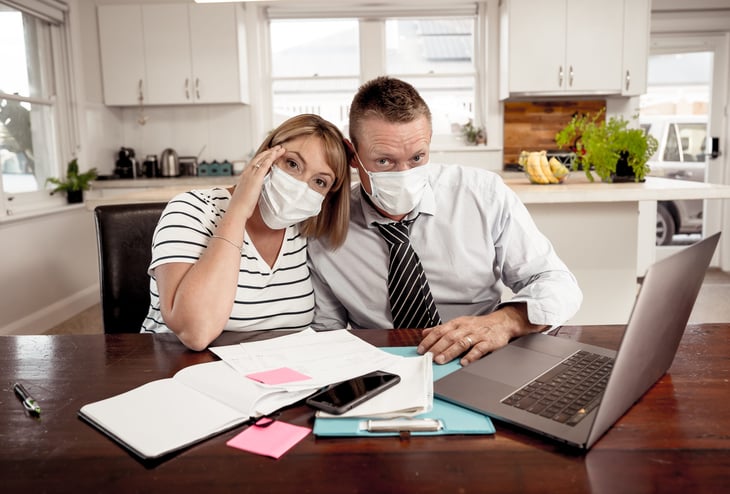
As concerns about a pandemic-caused recession grow, it’s not surprising if you’re wondering how you can protect your retirement savings.
As you consider your situation and work to protect your nest egg, here are some things to keep in mind.
1. Avoid rash decisions

Don’t make decisions based on emotion. It can be tough to decide what to do next when you feel anxiety over the current situation. However, it’s best not to make choices about your investments — including your retirement savings — based on information of the moment.
Try to avoid making hasty decisions. Before selling stock during a crash, or making other important decisions, review your long-term strategy.
2. Don’t check your retirement account too often

You’re more likely to make rash decisions if you’re constantly monitoring your portfolio.
While it can make sense to review your retirement account to make sure your asset allocation is still on track, checking too often can lead you to focus too much on market fluctuations and not on the big picture.
Protect your retirement by remembering your strategy and only checking your portfolio when it makes sense.
3. Avoid dipping into your retirement account if you can

The CARES Act, passed earlier in 2020, allows you to take an early withdrawal — up to $100,000 — from your traditional retirement account this year without the usual 10% early withdrawal penalty. This early withdrawal must be for a coronavirus-related hardship, however.
But before you withdraw, think carefully. If you dip into your account now your money will miss spending time in the market. You’ll have three years to replace the money, but will you be able to do it?
Congress has made it easier to access your retirement account, but that doesn’t mean it’s the right move. You’ll have a smaller nest egg down the road and miss out on potential growth if you withdraw money now.
4. Keep contributing to your retirement account

If possible, continue contributing to your retirement account.
For those who can continue with their regular contributions, it can make sense to keep building. On the other hand, if you’re worried, consider still contributing, but reduce the amount for now.
Even if you’re investing less, you’re still adding to your nest egg, not depleting it.
5. Focus on your emergency fund

If you decide to reduce retirement account contributions, you could put some of that money toward beefing up your emergency fund.
When you have an established emergency fund, you’re less likely to be tempted to use retirement funds for unexpected financial setbacks.
6. Beware of scams

Beware of scammers during this pandemic, especially those who want your financial information.
Be wary of companies’ claims about biotech stocks “on the verge of a breakthrough” because of coronavirus vaccine research.
It’s tempting to take a significant chunk of your nest egg and invest it in a miracle cure. But for many reasons, including most investors’ lack of market and biotech expertise, there’s a good chance you’ll lose money.
And keep watching for shady links and phishing attempts to get personal information. Keep your nest egg intact by protecting it from fraudsters.
7. Use your 2020 RMD waiver

If you’re already retired, you can protect your nest egg by reducing how much you’re required to take from your account. Because of the coronavirus pandemic, newer legislation waives the requirement that you take a required minimum distribution (RMD) in 2020.
For those who can get by without taking the RMD, it may make sense to leave the money in the account and let it grow.
8. Tune out the noise

Limiting your exposure to the news may actually be better for your mental health — and your retirement portfolio. Watching lots of bad news can increase your anxiety, worry and stress.
That reduces the chance of making decisions based on the news of the moment rather than long-term trends. Consider limiting your news intake, especially about the stock market, and tune out extreme voices.
Keep on your careful path, moving forward thoughtfully in a way that makes sense for you to protect your retirement.





Add a Comment
Our Policy: We welcome relevant and respectful comments in order to foster healthy and informative discussions. All other comments may be removed. Comments with links are automatically held for moderation.